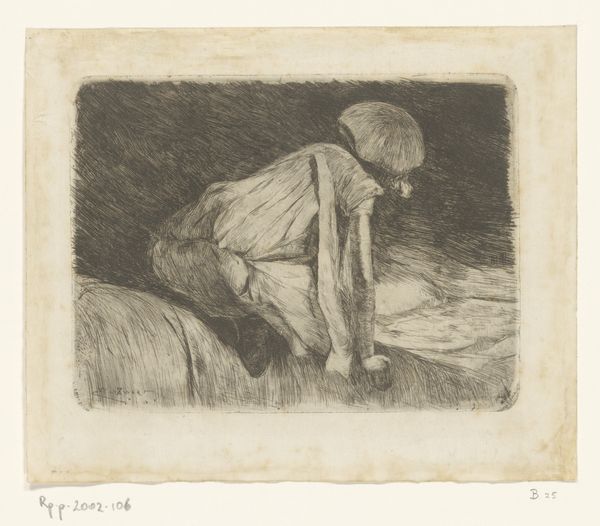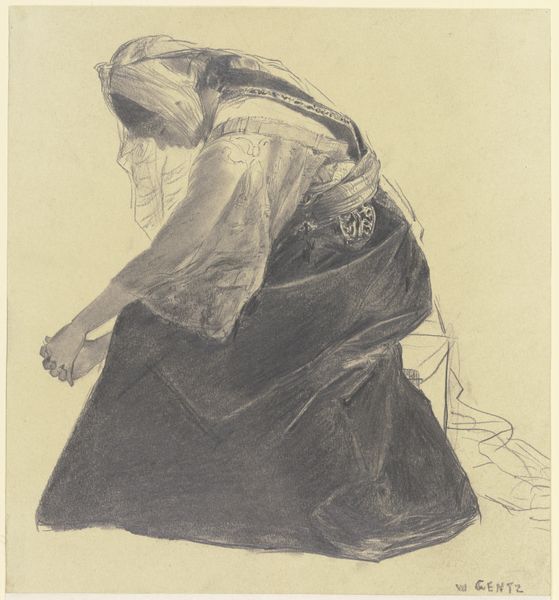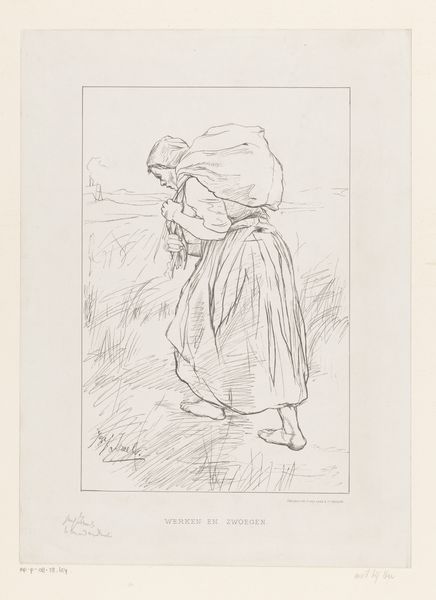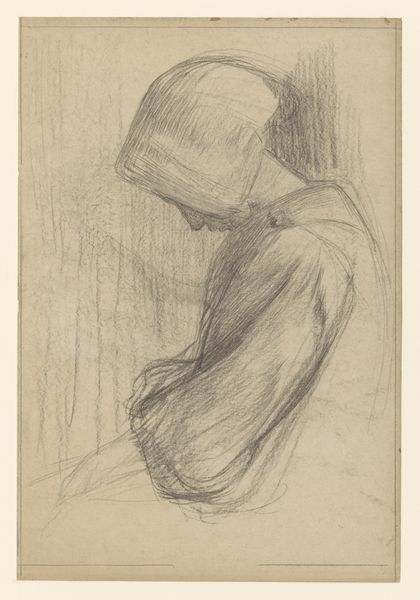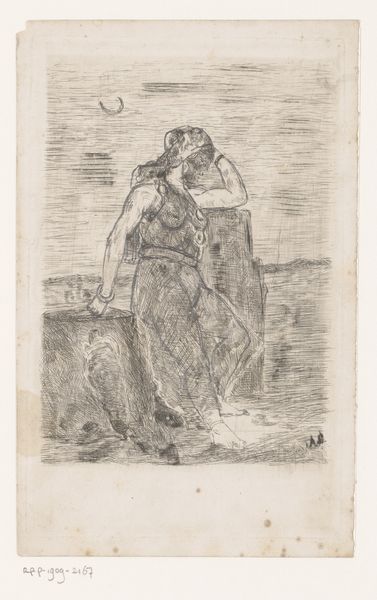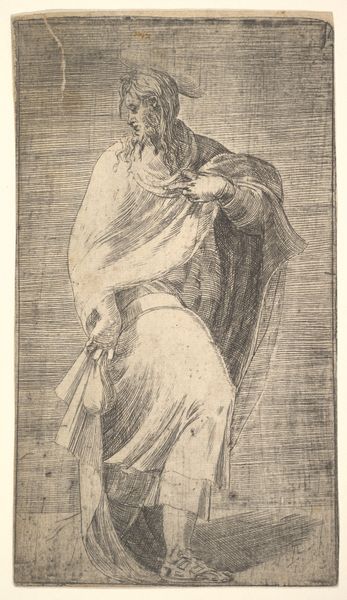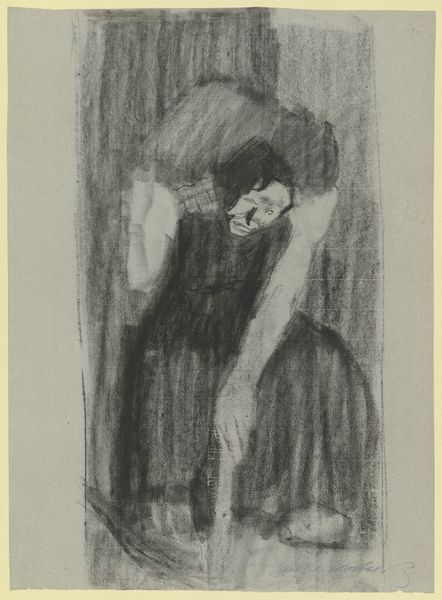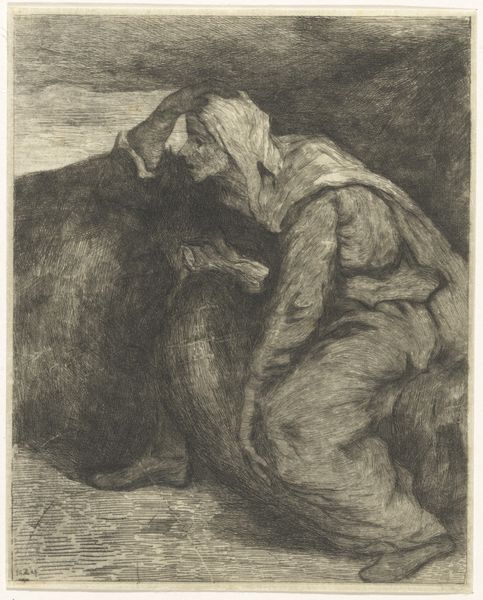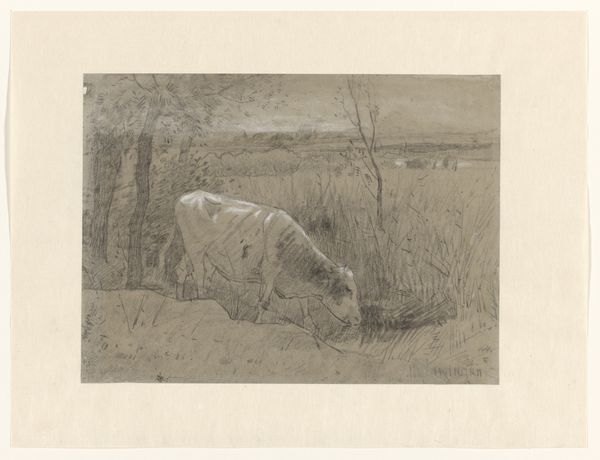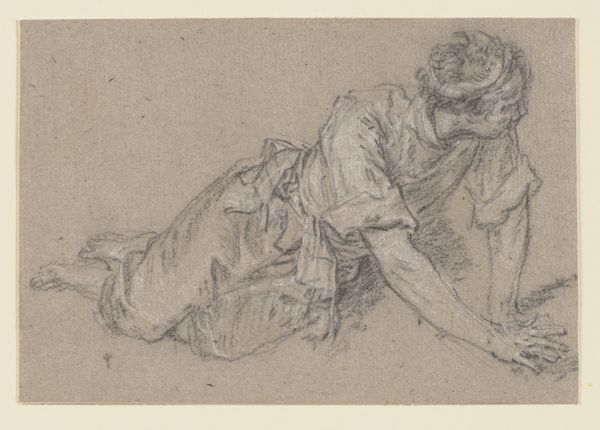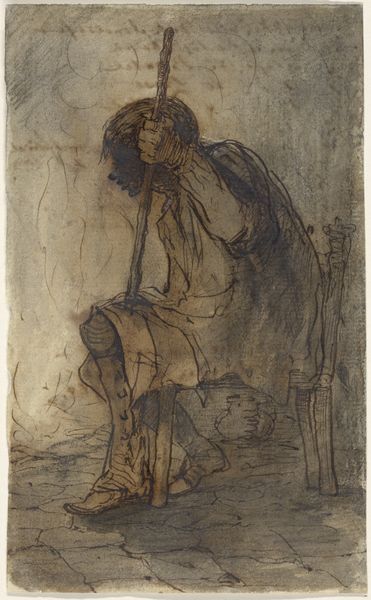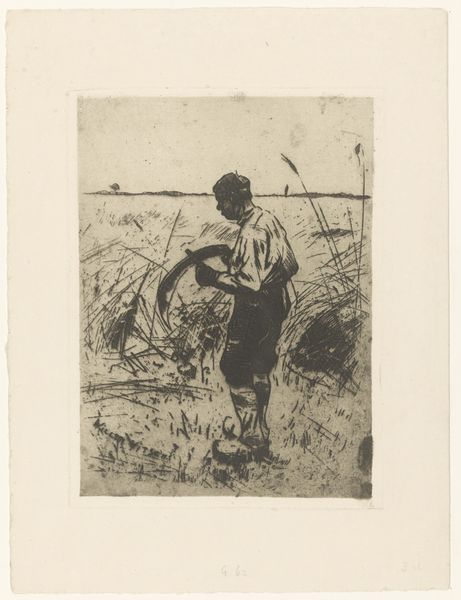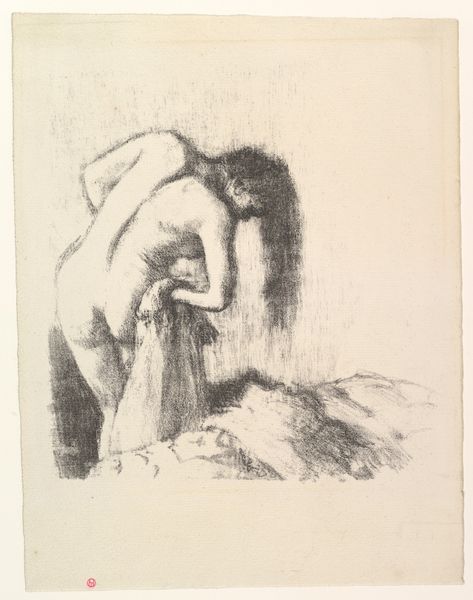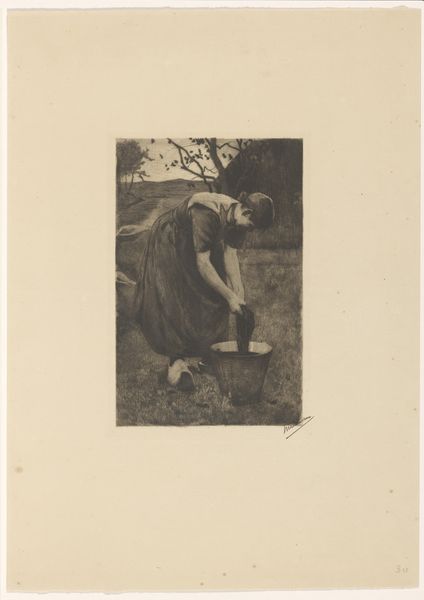
drawing, paper, pencil
#
portrait
#
pencil drawn
#
drawing
#
pencil sketch
#
landscape
#
paper
#
pencil
#
genre-painting
#
realism
Dimensions: height 358 mm, width 273 mm
Copyright: Rijks Museum: Open Domain
Editor: This is "Arenlezende vrouw," or "Woman Gleaning," by Pieter de Josselin de Jong, dated sometime between 1871 and 1906. It’s a drawing in pencil on paper and has this quiet, melancholic feel to it. What do you see in this piece beyond the depiction of labor? Curator: It's fascinating to consider this work within the context of late 19th-century artistic trends and social realities. Genre painting depicting rural life was popular. How do you think this image participates in or departs from that trend? Is it idealizing peasant life? Editor: Well, there's definitely a sense of realism. It doesn’t seem idealized to me. There’s a rawness to the figure. But beyond the technique, what political commentary could we ascribe? Curator: The depiction of a woman gleaning, collecting leftover crops after the harvest, highlights socio-economic disparities. Remember that this period saw increased industrialization and urbanization, contributing to rural poverty. By representing this, De Josselin de Jong directs our gaze toward a marginalized segment of society and begs the question of distribution of resources. Notice, too, her anonymity. The downcast head. What does that signify? Editor: You're right. The averted gaze and the labor itself suggest the realities of hardship of everyday life and poverty rather than any form of grandstanding or visual sensationalism. That really shifts my perspective on what this drawing is communicating. Curator: Indeed. So, reflecting on the way institutions like museums frame artworks, what purpose might displaying this image serve today, regarding our understanding of history and contemporary social concerns? Editor: It makes me think about how far – or not – we’ve come. Seeing art as a tool for historical understanding gives me new direction and new perspective in my art historical training.
Comments
No comments
Be the first to comment and join the conversation on the ultimate creative platform.
